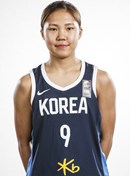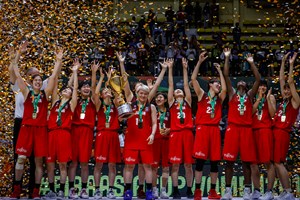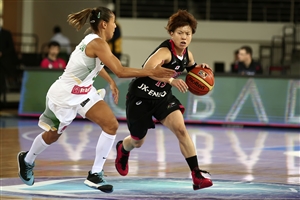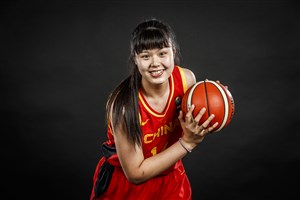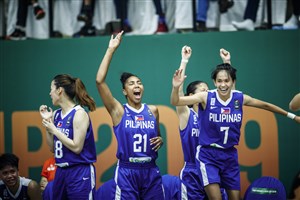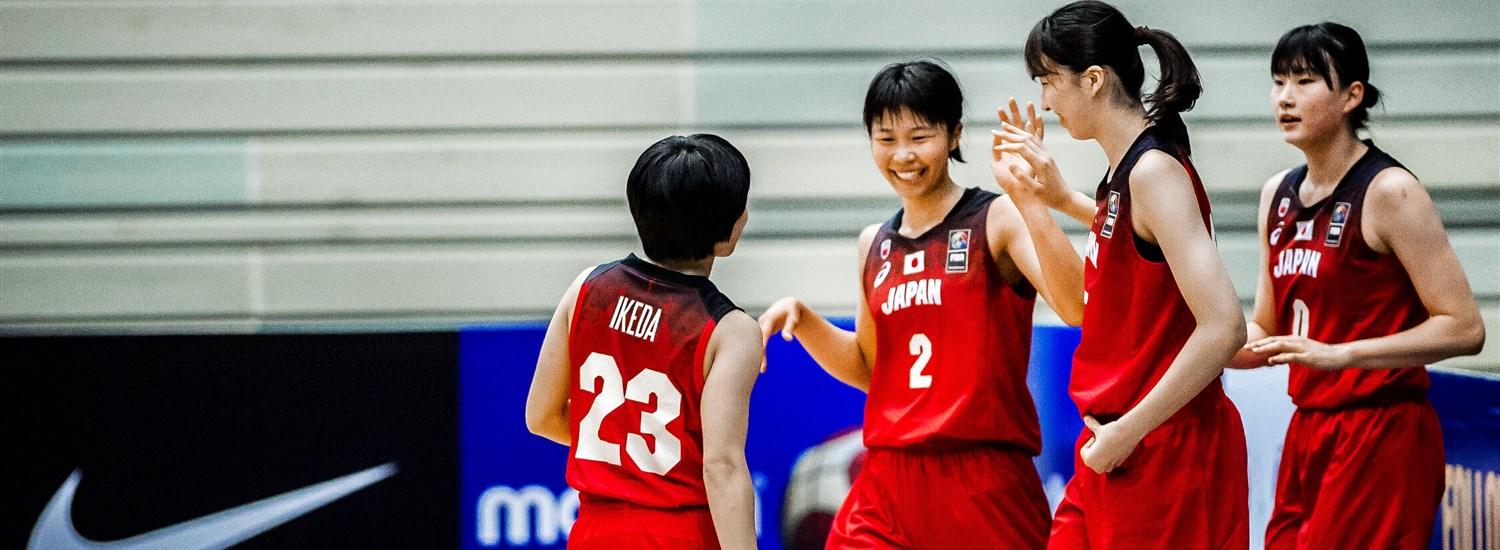
Which U19 World Cup star we could see at the upcoming Women's Asia Cup?
BANGKOK (Thailand) – The FIBA Women’s Basketball World Cup 2019 has wrapped up in Bangkok and, as always, there were plenty of bright young talents on display from all over the world. The global youth championship always serves as a peek into the future of basketball.
Here are some youth stars who have impressed at the U19 World Cup that has us looking forward to their debuts with the senior squad. Maybe some of them could even crack the rosters for the FIBA Women’s Asia Cup 2019?
Check out the list and see what you think.
Jihyun Park (KOR)
16.4 points, 7.1 rebounds, 3.7 assists, 3.9 steals per game
Jihyun had already made her senior national team debut at the biggest stage possible in the FIBA Women’s Basketball World Cup 2018. She barely made an impact, playing in only just less than 6 minutes but merely being there to soak in the experience should do great for her future.
Having already seen Korea’s trust in her potential makes it highly possible that Jihyun will be headed to Bengaluru next to play at the Women’s Asia Cup. She might not get to see big time minutes in important games yet, but it will be important for her to get a good grasp of how it feels playing at that level.

The skilled forward was already the team’s leading scorer ever since she was 17-years-old playing in the U19 World Cup in 2017. She’s taken that up a notch this year by leading the entire tournament in scoring.
Not only has she been putting up big time scoring numbers, Jihyun has been unleashing beautiful moves to get her way.
View this post on InstagramHit ‘em with the hesi like @basketball_korea’s 🇰🇷@park.ji.hyun__ 🤭! #FIBAU19
Mingling Chen (CHN)
12.7 points, 7.9 rebounds, 2.6 assists per game
Look. China doesn’t need any immediate reinforcements to their senior national team. Remember that they were just 4 points away from beating Japan and going to the Women’s Asia Cup 2017 championship game.
Still, if there is a 1.92M (6’4”) 19-year-old listed at center balling for your youth team like what Mingling Chen has been doing at the U19 World Cup, you might as well consider bringing her into the mix.

Chen flashed potential to also step out as a stretch forward as well in China’s slim loss to Spain in the Quarter-finals when she dropped 3 out of 5 triples. China seemed comfortable floating Chen out at the perimeter from time to time and she was able to display some playmaking as well with a 7-assist outing against Mali.
There is no urgency to get Chen into the system with Han Xu and Yueru Li locking down the shaded area for China, but it wouldn’t hurt to think about the possibility.
Yuan Li (CHN)
14.0 points, 4.9 rebounds, 4.4 assists per game
Similar to the aforementioned Chen, there is no instant need for Yuan Li to play at the senior level just yet. The depth at the guard position for China is impressive and Yuan Li still needs some work to do in order for her to crack into the rotation.

Li’s body of work in youth competitions has been impressive so far and she finished as the team’s leading scorer at the U19 World Cup. She also led the team in assists as well, also good for 4th in the entire competition.
With her killer crossovers and deadshot three-point shooting, it surely won’t be long before we see Yuan Li with the senior national team.
Nanako Todo (JPN)
12.3 points, 4.9 rebounds, 1.4 steals per game
Todo stood out as Japan’s lead scorer with a variety of quick herky jerky moves and cool ball-handling skills. She might be one of the smaller small forwards out there at 1.74M (5’9”), but Todo still pulls down a respectable 4.9 rebounds per game.
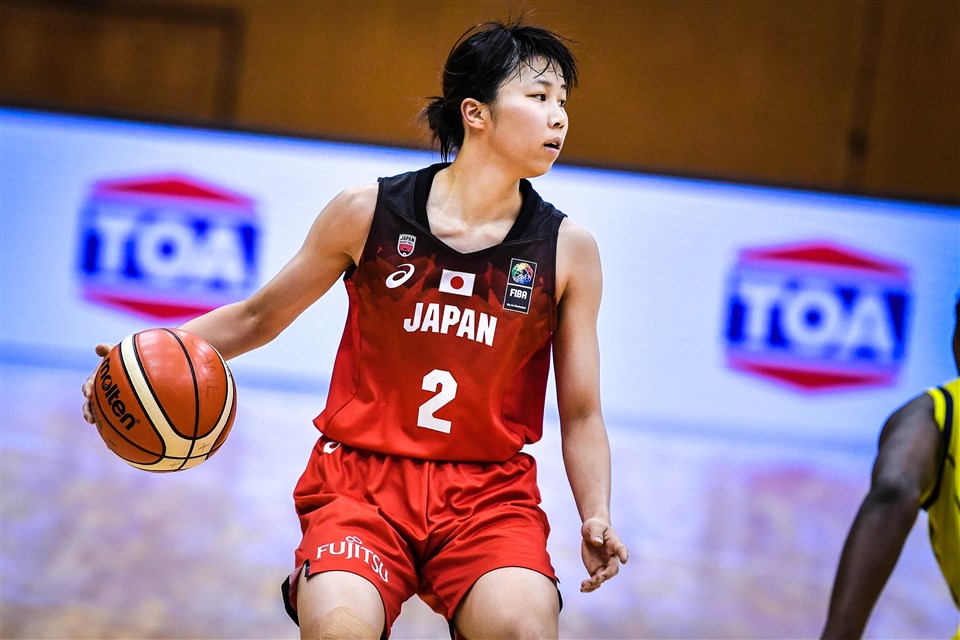
She won’t turn 19 until later this year, which means there is still a great deal of potential to be unearthed. At the U19 World Cup, Todo had great outings against Spain (13 points, 9 rebounds, and 2-3 three-point shooting) and Hungary (21 points, 5 rebounds, and 2-3 three-pointing shooting) in Japan’s run to 8th place.
Yuzuka Ishihara (JPN)
6.4 points, 2.9 assists, 1.6 steals per game
Her stats might not scream so, but Ishihara was one of the best playmakers in the entire U19 World Cup. Japan’s floor general controlled the tempo masterfully, finishing as the only top 15 leaders in assists to average less than 2.0 turnovers per game.
Standing at only 1.61M (5’3”), Ishihara truly was the “Little Engine that Could” in Japan’s opening game where she scored one clutch three after another to end up with 16 points on 4 three-pointers.

Japan are the back-to-back-to-back Women’s Asia Cup champions and a lot of that has to do with how well their guard play has been in this stretch of ultimate success from Asami Yoshida to Manami Fujioka to Rui Machida. Ishihara seems to have done well in absorbing what her seniors have done and should be primed to step up as the next best lead guard of Japan some time in the future.
Alexandra Fowler (AUS)
9.0 points, 10.0 rebounds, 5.6 offensive rebounds, 1.6 steals per game
Australia led the Women’s Asia Cup 2017 in offensive rebounds with 15.7 per game and those second chance were a huge factor for their silver medal win. Why not look into adding another offensive rebounding machine to the mix?

Alexandra Fowler was the main post presence for the U19 World Cup silver medalists that had pushed the mighty USA all the way to the brink in an overtime title game. She was just 7 points away from recording a double-double on average in the competition, but her impact was enough to earn her a spot in the tournament’s All-star Five.
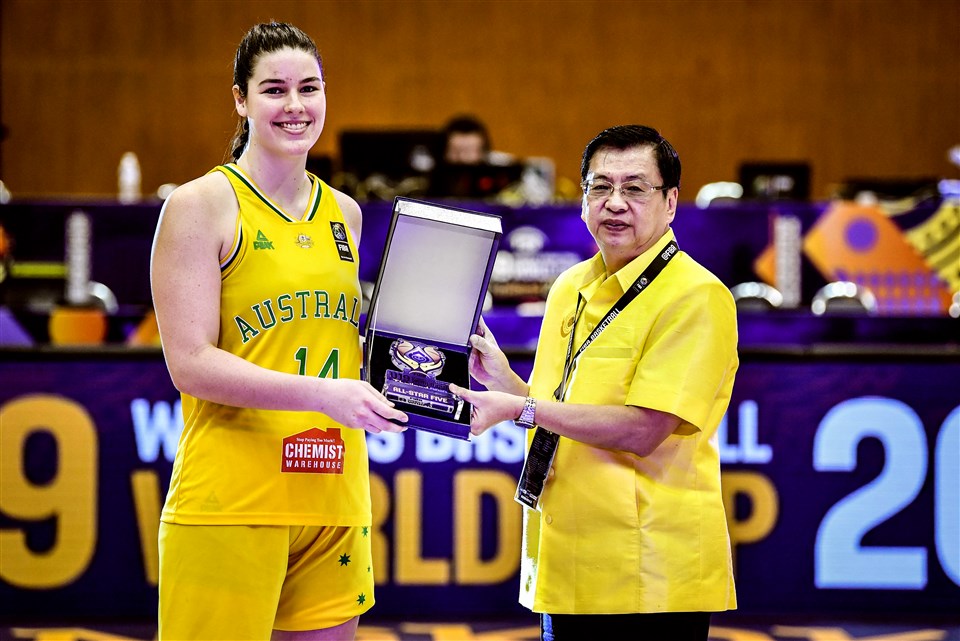
The Queensland native collected more offensive rebounds than defensive rebounds in all but the opening game, which says a bit about her instincts and hustle. ”Hustle” is a keyword that resonates well with the Australia national team, which is why it could make sense to see her at the Women’s Asia Cup 2019.
FIBA





